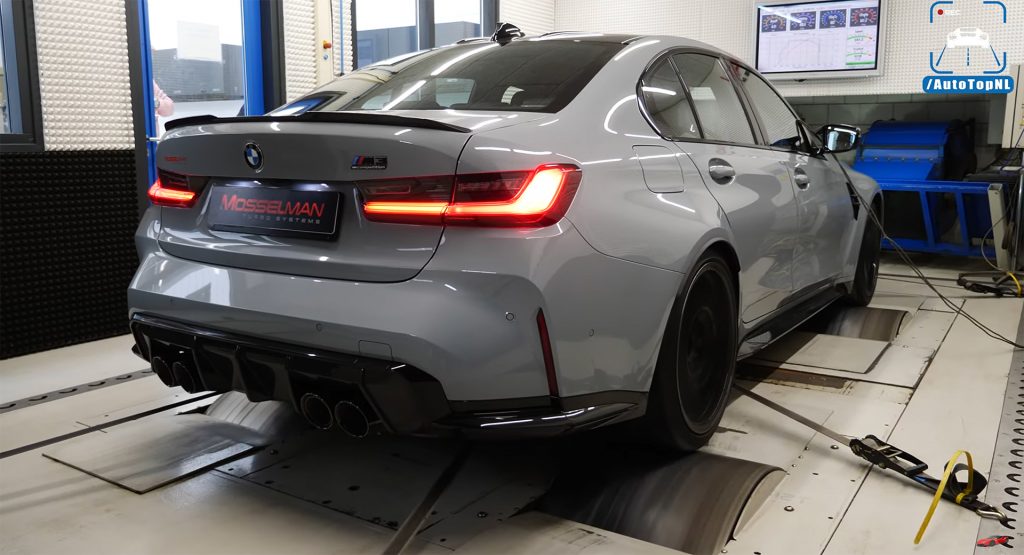It’s not uncommon for performance models to put out a little more, or maybe less, horsepower than the figure advertised by the automaker when they are put on an independent dyno. Sometimes, though, the differences are quite surprising.
A few weeks back a dyno run with a BMW M4 found that it churned out 74 hp more than advertised, for a total of 547 hp. If this is accurate, it would make it more powerful than even the Competition.
Speaking of which, an M3 Competition, which has the exact same engine as the equivalent M4, was recently strapped on a dyno as well. In stock form, its twin-turbocharged, 3.0-liter inline-six is rated at 503 hp (510 PS / 375 kW) and 479 lb-ft (650 Nm) of torque. According to BMW, those numbers allow the car to reach 62 mph (100 km/h) from a standstill in 4.0 seconds, although that was found to be underrated when it was measured on a third-party device.
See Also: If You Can’t Wait For The BMW M3 Touring, The M340i Might Do The Trick
Anyway, after the M3 Competition was put on the dyno, it recorded a maximum output of 538 hp (545 PS / 400 kW) and 519 lb-ft (703 Nm) of torque, or 35 hp and 40 lb-ft more than BMW’s ratings. The difference compared to the official figures is not as great as with the aforementioned M4, but it’s still noticeable.
That being said, the discrepancies could be due to a number of reasons. For one, different elevations with different air densities will see different power figures when testing. The thinner the air, the less power the engine would be making, so if BMW’s testing was done at a higher altitude than where this dyno run took place, it would stand to reason that their figures would seem underrated by comparison.
Read More: BMW M3 And M4 Competition Gain xDrive This Summer, Will Hit 62 MPH In Just 3.5 Seconds
Another possible source of error could be the conversion of wheel horsepower to crank horsepower. The dyno in the video measures power at the wheels, so they factor in a roughly 15% power loss from drivetrain friction to obtain the higher crank horsepower figure. However, some claim that with modern advancements in drivetrain technology, that loss is more like 10%, which would still put the crank horsepower higher, but closer to BMW’s official numbers.




